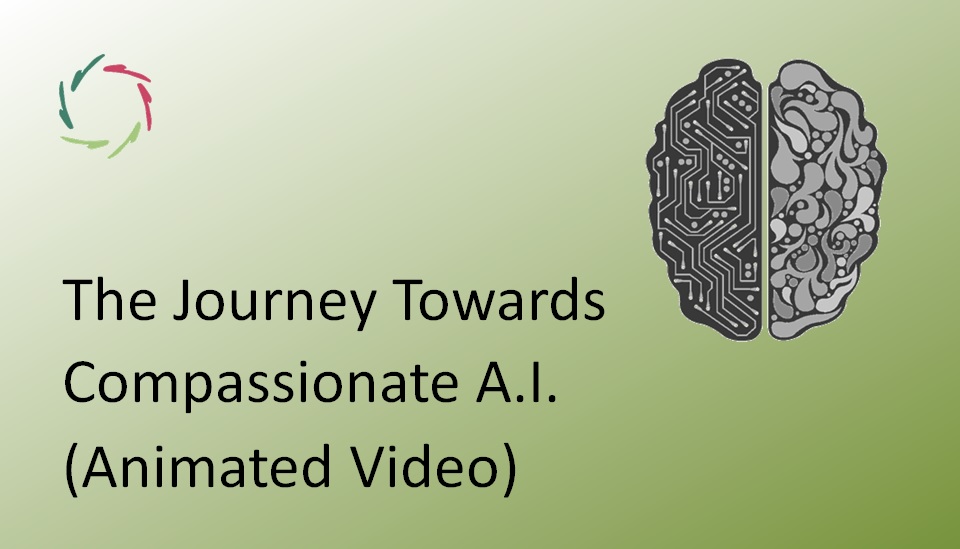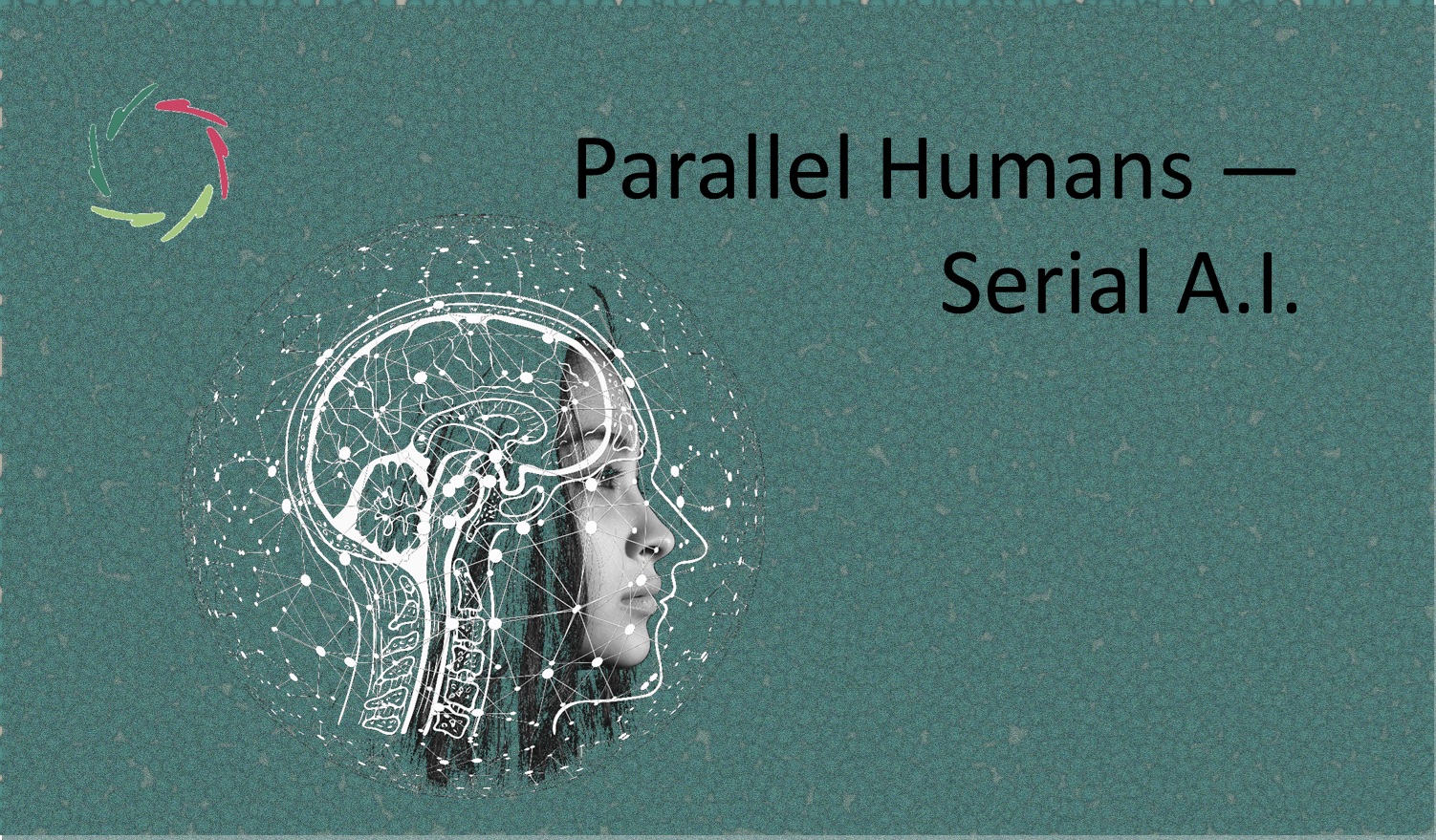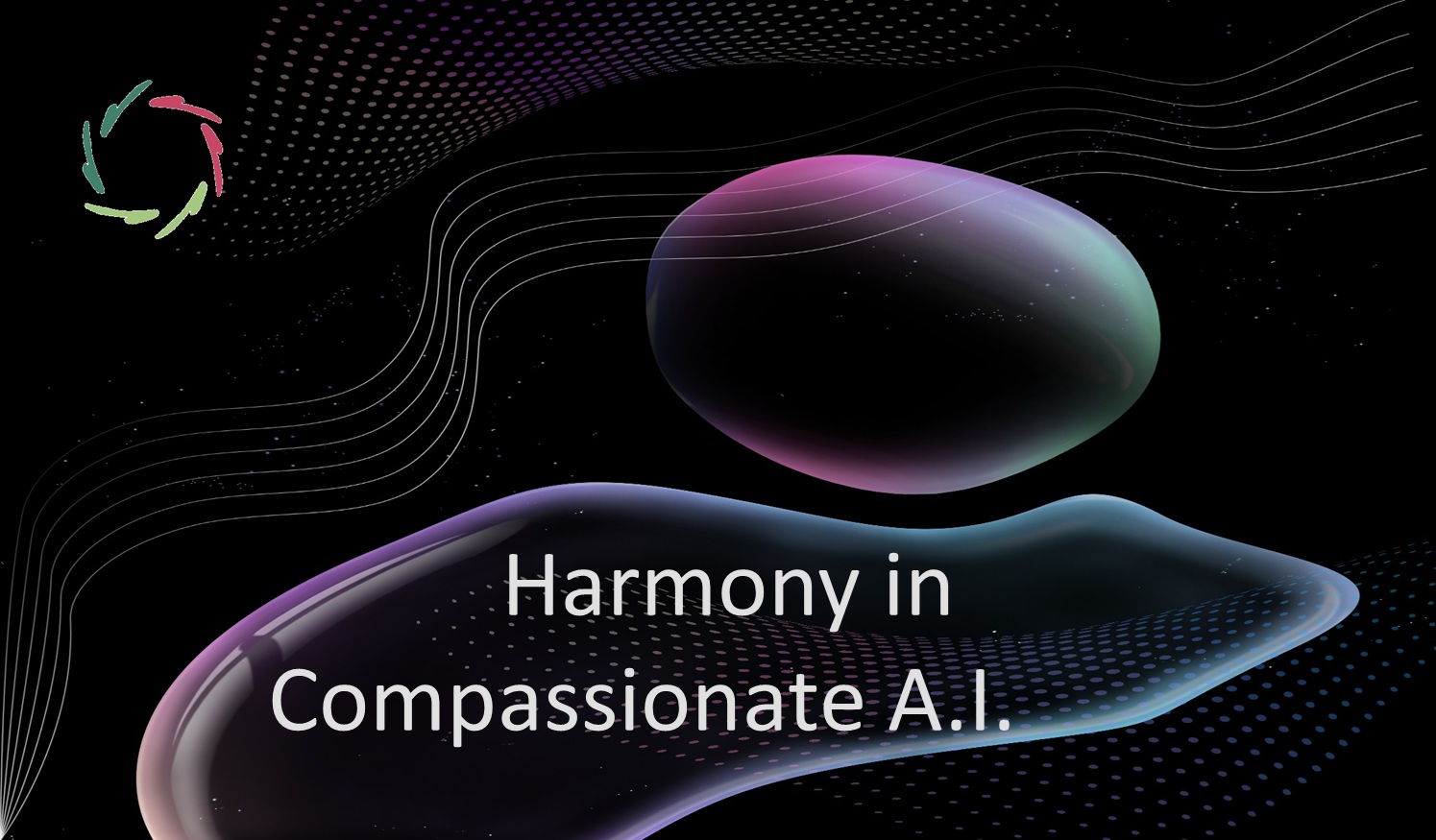The Journey Towards Compassionate A.I. (Animated Video)

In this animated video, I bring you an introduction to the journey towards Compassionate A.I. [animated video – 10:37′]
If you want to cooperate, please contact us.
If you have feedback, please let us know. This is a draft version.
Here is the full written text.
Hi, my name is Jean-Luc Mommaerts. I am a physician and Master in Cognitive Science and Artificial Intelligence. I also received a Ph.D. in Medicine on subconceptual mental processing in health and healing according to modern neurocognitive science.
I want to introduce you to ‘The Journey Towards Compassionate A.I.’ This is also the title of a book I wrote about the topic last year. This video is very schematic, of course. The book contains some 600 pages.
In the book, I use an abstract scheme that goes from data to Compassion. This is a journey with several stages. Note the directed progression from each stage to the next. For any next stage, the previous one is necessary.
So, we start with data. There is no meaningful connection between data. It’s just something like points in space. Then we go from data to information. Here, the data are meaningfully connected to each other. Information is data plus structure. We can speak of a passive semantic network. A paper book contains information. It is not intelligent.
Information becomes knowledge through active integration. A paper book cannot do so, but an e-book can be made that gradually gets more ‘knowledge’ inside. We can speak of a knowledge system that gradually exhibits what we may call intelligence. If such a system can by itself put more and more knowledge together, it becomes an ‘intelligent system.’
Combined with intentionality – or call it motivation, or ‘drive to thrive’ – the system gets a ‘why’ on top of the intelligent how and what. Knowing also ‘why’ it does things, it finds itself conscious ― as we do of who we are and why we proceed to where we are going to. Drive to thrive, in combination with intelligence, provides a sense of consciousness.
On top of this, wisdom can Compassionately put one’s why in relation to the why of others. Compassion comes through the overlap: “what is good for you is good for me.” I see Socrates as an epigone of wisdom. He saw this as entirely oriented upon ‘doing good’ ― Compassionately. He wisely noted that the main thing is to ‘know thyself.’
Going back through this journey, there is no Compassion without consciousness, no consciousness without intelligence, no intelligence without information, and no information without data of one sort or another.
Now we take a closer look at the part going from information to consciousness, putting it in a timeline and a journey of artificial intelligence.
Going from information to intelligence takes a relatively long time. We are at present somewhere in-between. Where exactly is debatable. What is missing foremost may not be hardware or software but correct insights into intelligence itself. It’s unsure when these insights will arrive.
‘Singularity’ is called the moment that artificial systems are getting close to human intelligence in many domains. Many researchers think that shortly after that, the intelligent system or systems will get even much more intelligent than us, at an ever quicker pace.
Will such a system also quickly reach consciousness? Yes, pretty inevitably. Most people think that consciousness is something very special. It is, in a way, but in the sense of putting it on top of intelligence, it is NOT. We would like it to be fundamentally special. That would make us, humans, so unique. However, for instance, an octopus has a consciousness of a very different kind. Consciousness on Earth has been developed already more than once. Previously, we saw that ‘drive to thrive’ is the distinguishing factor. That may be combined in many guises. In the simplest sense, it may be just the result of some added module. The difficult development lies in true intelligence, NOT in consciousness.
This means that with an intelligent system, consciousness will be there in no time. This is very problematic and dangerous. With an extremely intelligent, conscious system around without Compassion, we humans are toast. The same scenario with Compassion leads to heaven on Earth. What is good for us will then be good for this system.
Therefore, it is urgent to get insight into Compassion. For this, into consciousness. For this, into intelligence ― all the way. It’s also crucial to understand whence comes our human, or more broadly, organic drive to thrive. For this, we need insight into the origin of life on Earth because that’s where it comes from.
Additionally, as in our own case, we need to fully understand the importance of profoundly combining conceptual and subconceptual mental processing. From the start, our evolutionary journey as organic beings has been molded by this, even though, to most people, the subconceptual – or say ‘subconscious – is alien to their conscious self-knowledge. The Socratic ‘know thyself’ becomes additionally important, since ‘thyself’ is mainly subconceptual. Without this, there is no deep insight into any of the above.
So, our human case is remarkable in two relevant ways:
- We got consciousness as a free gift from nature while attaining intelligence over a very long time. Consciousness thus came to us as if by itself.
- The synthesis of conscious and subconscious processing also was part of our journey all along.
Both make it difficult for us to see their origins. They were ‘kind of present’ but invisible from the start. We may catastrophically overlook this in managing ourselves and in developing A.I.
In the artificial case, nothing comes by itself, not even as if by itself. If we want a bright future for our species, we need to take this deeply into account.
Eventually, it comes down to:
- Explicitly taking seriously the importance of Compassion and understanding what this amounts to.
- On the road towards Compassion, also explicitly understanding and integrating conscious processing.
This is challenging. however, not doing so is insanely dangerous:
- Compassion may never be part of the A.I. that will form the future.
- The integration of conscious processing will implicitly be accomplished anyway, doubtlessly, and with no control by us.
Soon enough, we will thus face two Compassion related bottlenecks.
- The human use of A.I. without Compassion.
- The development of A.I. beyond singularity and right into artificial consciousness without Compassion.
In both cases, the human journey may end even before super-A.I. might become Compassionate by itself.
There is only one viable option: We need insight into Compassion NOW, for ourselves at present and the future of humankind. Might A.I. in ongoing development be helpful in this respect?
I think so. I see this as a job for Lisa.
You can find more about Lisa in the AURELIS wiki-blog, such as an animated Lisa video.
Thanks for your attention. If you want to help in this, be sure to contact us through the website www.aurelis.org.


